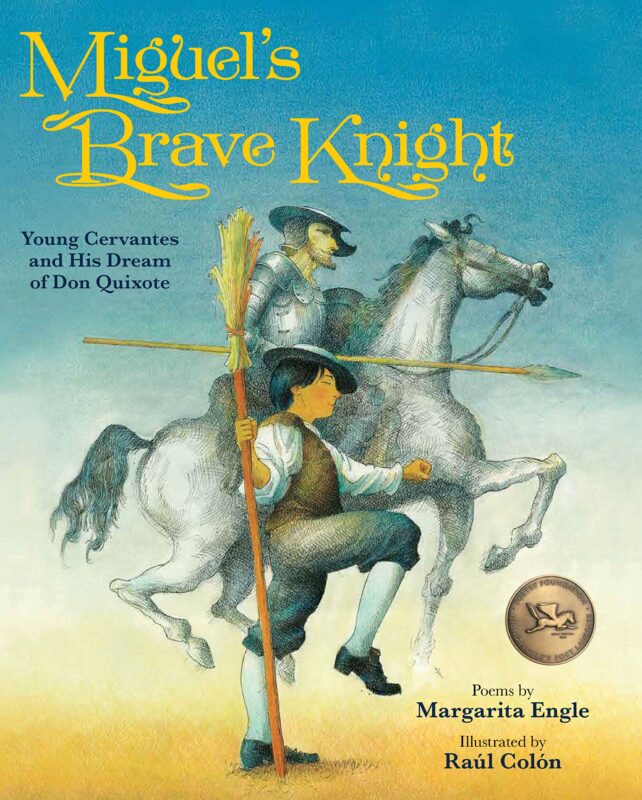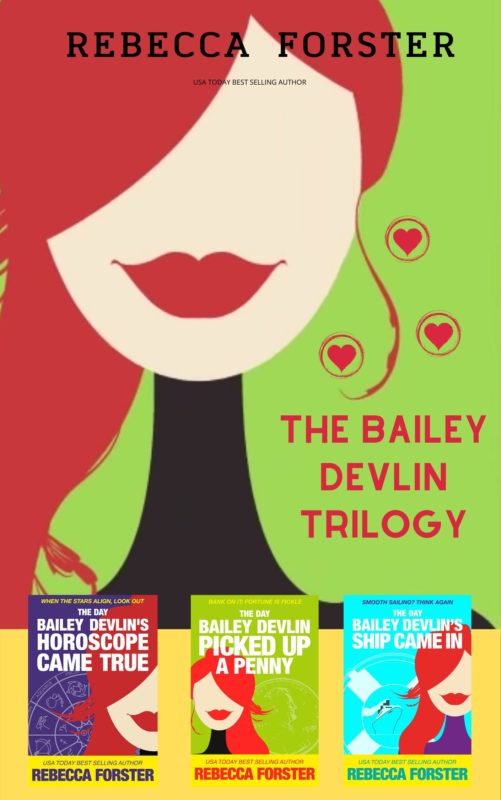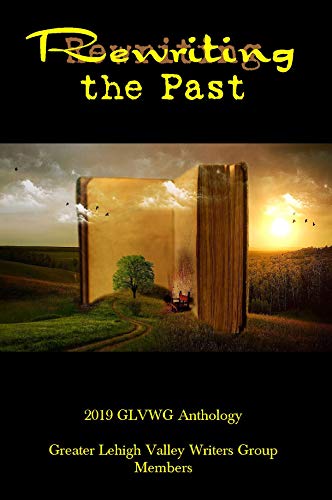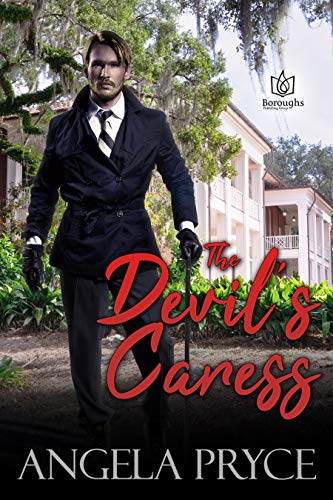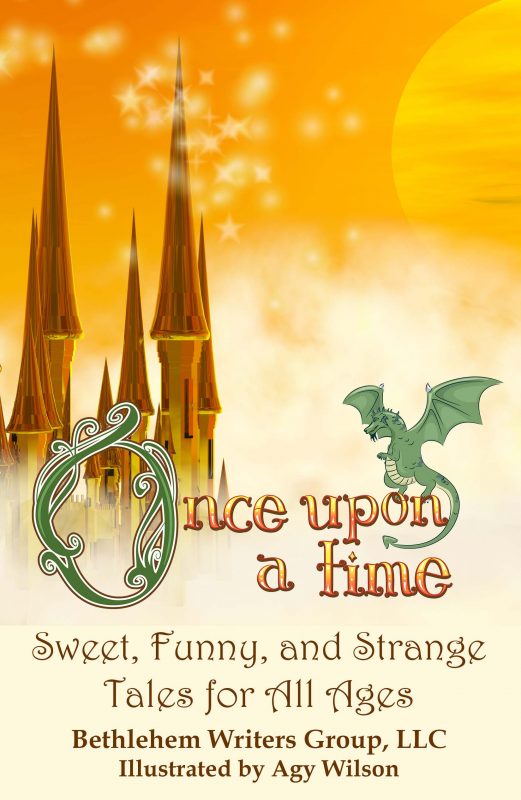As a Writer, Is Talking to Yourself a Bad Thing?
May 3, 2020 by Janet Elizabeth Lynn and Will Zeilinger in category Partners in Crime by Janet Elizabeth Lynn & Will Zeilinger, Writing tagged as editing, lockdown, writing
Is Talking to Yourself a Bad Thing?
I’ve seen jokes and memes all over social media that describe how being self-isolated or “quarantined” during this COVID-19 pandemic has had one of two effects.
The first has been an overwhelming feeling of being trapped or imprisoned, with no opportunity for social interaction. If you have kids, and they are home, they have to be fed and watered, educated, entertained, and of course, experience some quality time with you. Even if you don’t have kids or parents in your home, there’s always laundry and dishes, all those things on your to-do list you’ve been putting off until you had “time.” Things like home repairs, organizing, binge watching all those programs and movies, you’ve recorded, and naps . . . yes, naps. The thing is, you aren’t trapped.
How are you using your self-isolation?
The second feeling has been one of great relief, as being shut up in one’s domicile provides the writer with the opportunity to get that story or book onto paper (or at least into the computer’s memory.) This second opportunity can also be seen as the chance to see ourselves in the mirror of truth.
Let me put it this way: Let’s assume you are a serious writer, whether it be a journalist, essayist, short-story author, non-fiction, or fiction novelist. What exactly has been keeping you from writing that thing you write? Is it your job? There’s that daily commute that can eat up a couple to several hours each day. Does the boss hover over your shoulder so you have no chance to put down a few paragraphs each day? Is it your chores, like taking the kids to school or daycare, picking them up, and taking them to their extra-curricular activities (soccer, dance, scouts, etc.?) Do you have a second job?
During the time we are all confined (at least, we should be) have we learned anything about ourselves and our writing process?
In that vein, there is another advantage to this situation—that is being able to read your WIP out loud to yourself or to those at home with you. Reading your work aloud helps you catch the rhythm of your writing, especially in early drafts. Though you may not be commuting, those hours can be spent refining dialog, grammar and even some holes in story or essay.
If you happen to live alone, you may have access to a recorder or use your computer to record and playback what you’ve read aloud. Even if you aren’t ready to read it to the world, your family and yourself are all great critique partners.

Go ahead and read—aloud. You’ll never go back to just reading over the page.
~Will
P.S. To those of you who are essential workers—thank you and stay well. We all want to read the stories that will come from all this.
Books by Janet Elizabeth Lynn and Will Zeilinger
Challenges of Writing on the Road
April 13, 2020 by Bethlehem Writers Group in category From a Cabin in the Woods by Members of Bethlehem Writers Group, Writing tagged as finding time to write, Making time to write, writing
I’ve been writing for a lot of years. It started somewhere in my corporate career when the girls were little, with short stories I’d read to them for birthdays and holidays. First book I’d written began as a story to celebrate my oldest daughter’s 12th birthday. That’s when the muse came a calling, and next I know, the story was over 300 words. It had all the faux pas of a newbie, repeating words, passive voice, minimal sensory and bad spelling (didn’t have spellcheck in those days). I had it bound as a hard copy, gold lettering for the title – cost me a fortune back then, but it was worth it. She liked it so much; I wrote a sequel of similar length. It is still one of my daughter’s most precious possessions.
The muse took up residence, and it wasn’t to be denied. With a job that had me boarding planes weekly, how was I supposed to satisfy the writing urge? Weekends were out. That was family time—and chores—and honey-dos—and kid’s events . . . I learned to access time slots while a prisoner of an airplane (seats were bigger then) and forgo watching hotel television at night (there wasn’t anything worth watching anyway). Can’t write on a plane anymore unless in first class. Coach seating is a sardine tin where we’re all a little heavier, the tray table might fit a drink glass with a deck of cards, and the seat in front of me is maybe ten inches from my nose.
At home, I’ve got the writing cave and silence, where the muse happily homesteads, ready to fill my thoughts with new directional themes. When I’m traveling, almost always with my wife/kids/grandkids/siblings, it’s a non-stop cornucopia of distractive activity, surrounded by the din of fellow humans. The muse had become accustomed to the safe zone of my writing cave and doesn’t appreciate the competition for my attention. No sooner do I sit down at the laptop, somebody calls my name.
Why don’t I write at night like I used to, when things quiet down? Unlike many writers who thrive on burning the midnight oil, I have become a morning writer. The muse is fresh, unfettered by the noise of life. Skipping the cocktail hour might help, but it’s the only time my wife and I convene to compare notes of the day, eat dinner, then wait for the daily Facetime call from kids who are on western time (grandboys are rather insistent I take part). When traveling, I’m expected to be participative, and young folk participate after work. By the time it all ends, the muse “has left the building”.
So, what’s a morning writer to do? For short trips, I might do some editing, or compose a few notes of the current project, which is kind of aggravating for the muse and I. We’re both hardcore pantsers. Plotting gives us hives. On the long winter forays where we’re domiciled near the kids out west, I go in search of a quiet haven. Local library is a good start, but it’s best to know when toddler reading hour is scheduled. Last time I went, a little nose-miner saddled up to me while I was typing, begging to crawl in my lap. It’s enough to instill fear in today’s times. We rent a condo when visiting mother down south. Most have nice gathering areas that nobody uses in the morning. Again, awareness of scheduling is important. The local women’s club du jour might show up, ask a lot of embarrassing questions, then seduce me to join them. Last year’s rental had a front-row seat at the ladies seventh-hole tee box. All day long, whack—thump—followed by ample cussing. And to think many of them were grandmothers.
I may go days, or weeks, writing nothing meaningful. I grab whatever opportunity arises. When I return to the word processor, the muse is waiting with a head shake and impatient foot-tapping, but ready to rock. Booting up after a long absence, the magic is even more special. I guess the saying: “absence makes the heart grow fonder”, works for us writers as well.

DT Krippene is a contributing author in the recent BWG’s paranormal anthology, Untethered (available below). A man buys a house for a price that is too good to be true, until he discovers the bizarre strings attached in “Hell of a Deal”. He’s also contributed articles for the Bethlehem Round Table Magazine with “Snowbelt Sanctuary”, and “In Simple Terms”.
A native of Wisconsin and Connecticut, DT Krippene deserted aspirations of being a biologist to live the corporate dream and raise a family. After six homes, a ten-year stint in Asia, and an imagination that never slept, his annoying muse refuses to be hobbled as a mere dream. Dan writes dystopia, paranormal, and science fiction. His current project is about a young man struggling to understand why he was born in a time when humans are unable to procreate and knocking on extinction’s door.
You can find DT on his website, and his social media links.
3 0 Read more
Life and Writing
April 6, 2020 by Linda O. Johnston in category Pets, Romance & Lots of Suspense by Linda O. Johnston tagged as covid19, life, staying at home, walking dogs, writing
Life has changed. For everyone. At least for now.
Covid-19, the Corona virus, is out there. Hopefully none of you reading this has caught the virus, and neither have your family members or friends. But even so, it has affected you.
For one thing, I’m in California, where we’ve been directed to stay at home except for important outings such as buying food. Most states have given the same directive to their residents. As a writer, I’m used to staying home. But it still feels different when I don’t have an option, even for good reason.
So, no visits to exercise classes. My dogs are happy enough about that since my husband and I are taking them on more walks. Everyone else in my neighborhood seems to be doing the same thing, dogs or not, so we cross the street often to stay away from one another.
And writing? Well, I’m in the middle of an important edit, and that’s what I’m concentrating on. I’ve more writing to come, too. But I’m wondering how I’ll refer to the pandemic in future stories, when hopefully this is all behind us. Will I mention it? Will I ignore it? Will I take on writing a fiction story that is based on what is currently happening?
Not sure.
Even my reading now has been affected. When I read about a major gathering in a story, for example, my mind leaps out of the book and I scold all those people for getting together till I realize where I am and what I’m doing. Or even as I’m editing, I think about whether the people in my story need to be together at their workplaces, then slough that off as being today’s reality, not the fiction I’m writing.
So how long will this last? The experts vary in their estimates but in any case it’ll still be going on tomorrow and the next day and most likely several weeks, or months. It feels weird. It feels scary. And as a fiction writer having to deal with reality—it’s definitely difficult.
So… hang in there. I will.
Linda
0 0 Read moreFIRST QUARTER RESULTS
April 5, 2020 by Tracy Reed in category Pink Pad by Tracy Reed, Writing tagged as publishing, results, writingHappy April and Happy Birthday to me. Today’s my birthday and I am celebrating at a very intimate and exclusive restaurant, my house.
There is no need to rehash or complain about what we are all enduring. Here’s my only comment or prayer, we are all victorious survivors and can endure more than we can imagine.
I’m going to keep it short this month.
I just finished my first quarter as a planner girl. It has been an amazing experience. I’m a lot more focused and I’m amazed at how much I got accomplished. There are some tools I really like and some that I didn’t. At least right now. I might revisit the ones that didn’t fit later. I will only be discussing the planning tools I’m using for my author business.
Tool: Kanban Board
I’m not going to say I love this just yet, but I really like it. It helped a lot to see my tasks in front of me daily. It also forced me not to bite off more than I could chew. When I put this in place, I was going to write a different book. About two weeks into the first 30 days, the book I scheduled just wasn’t. I switched books and the words flowed like a faucet. In fact, the book went from novella to novel length.
There were a few things that were moved because it involved the book I was no longer working on. My math might be a little off but here are the results. I started the year with 3 goals and 59 tasks. I complete the goals. I realize those are going to take a little longer than expected. The goals had 59 tasks. I completed 32 tasks, 15 didn’t get done and 7 were carried over.
As of this posting, I’m working on next quarter’s Kanban board.
Tool: Ads
I have been meaning to try Fussy Librarian and just hadn’t gotten around to it. However, I received an email offering me a chance to try them for free with a free book. I did and ad day produced great results. My book got to #4 in a couple of categories and in the top 100 with another one. The tails on the ad lasted about a week. I will definitely be trying them again.
I have an official ad budget and I’ll let you know how it’s working at the end of the quarter. I think I need 90 days to really assess the results. I am currently in the first stage, testing facebook ads. This is an area I really want to crack. I have spent too much time and money on courses for them not to work.
Tool: Planner Inserts
I have been testing a mixture of planner inserts searching for the ones that are right for me. I think I have a system I like. I’m not the planner who likes a lot of stickers. Although I did see some last week that I really like. I do use colored transparency tabs and some dots.
I created an engagement log sheet which I use weekly to chart my sales, word count and social media followers. This has helped me. When I write things down, it helps me visualize and push myself. Or know when to take a break.
Tool: Author Planner
My author planner is really a business bible. It contains a calendar, production schedule, newsletter and ad schedule, expense and sales log, print book inventory and event schedule. This is very handy. I use it in conjunction with my 90 Day Plan notebook. Any story ideas are kept in a separate notebook by my bed.
Tool: Instagram…Social Media
I did an online course on building your Instagram audience for my lingerie business and tried it with my author business. It works well for the lingerie, but not as well for my author business. I’m thinking about trying Planoly to schedule my author posts. When I post on Instagram, I make sure to click the other social media options. This helps me stay engaged and post regularly. Interesting thing, when I post a shirtless man, I get great engagement. Go figure.
WIP…as of this post, I am approximately 4500 words away from completing my book. I know last month I said I was about 7000 words away from completing my book. That was true. However, the story took a turn and I added a few more thousand words. I really thought I would have finished it sooner. But the delay has worked to my advantage. I’m not sure how a release would have done right now.
I’m not sure what I’ll talk about next month. Let’s play it by ear.
Happy April. Stay safe.
Everyday People by Veronica Jorge
February 22, 2020 by Veronica Jorge in category Write From the Heart by Veronica Jorge tagged as news, Social Media, writing, writing life
While there is so much concern and controversy over climate change, I am more fearful about the future of our own environment: that of words, writing and speaking.
Nowadays, it seems that one must be a meteorologist; able to gauge and predict social climatic conditions, because you never know who you might offend if your views run contrary to the prevailing winds. A particular topic might heat things up. A storm rages. The dissenting voice is silenced.
It seems we are still living the lyrics to the popular 1968 song by Sly and the Family Stone, Everyday People:
“…There is a blue one who can’t accept the green one
For living with a fat one, trying to be a skinny one…

The news, social media, college campuses, and politics will most likely continue their tug of war. But I hope that the writing community will elevate itself above that fray and be able to provide a safe haven where every voice lifts up on the wings of freedom, and where every voice is welcomed and heard.
See you next time on March 22nd.
Veronica Jorge
6 0 Read more
Affiliate Links
A Slice of Orange is an affiliate with some of the booksellers listed on this website, including Barnes & Nobel, Books A Million, iBooks, Kobo, and Smashwords. This means A Slice of Orange may earn a small advertising fee from sales made through the links used on this website. There are reminders of these affiliate links on the pages for individual books.
Search A Slice of Orange
Find a Column
Archives
Featured Books
MIGUEL’S BRAVE KNIGHT
Miguel de Cervantes Saavedra finds refuge from his difficult childhood by imagining the adventures of a brave but clumsy knight.
More info →THE BAILEY DEVLIN TRILOGY: BOOK 1-3 (The Bailey Devlin Series)
Bailey Devlin believes in fate. . .and luck. . .and fortune telling.
More info →ONCE UPON A TIME: Sweet, Funny, and Strange Tales for All Ages
Step through our castle doors into a world of imagination!
More info →Newsletter
Contributing Authors
Search A Slice of Orange
Find a Column
Archives
Authors in the Bookstore
- A. E. Decker
- A. J. Scudiere
- A.J. Sidransky
- A.M. Roark
- Abby Collette
- Alanna Lucus
- Albert Marrin
- Alice Duncan
- Alina K. Field
- Alison Green Myers
- Andi Lawrencovna
- Andrew C Raiford
- Angela Pryce
- Aviva Vaughn
- Barbara Ankrum
- Bethlehem Writers Group, LLC
- Carol L. Wright
- Celeste Barclay
- Christina Alexandra
- Christopher D. Ochs
- Claire Davon
- Claire Naden
- Courtnee Turner Hoyle
- Courtney Annicchiarico
- D. Lieber
- Daniel V. Meier Jr.
- Debra Dixon
- Debra H. Goldstein
- Debra Holland
- Dee Ann Palmer
- Denise M. Colby
- Diane Benefiel
- Diane Sismour
- Dianna Sinovic
- DT Krippene
- E.B. Dawson
- Emilie Dallaire
- Emily Brightwell
- Emily PW Murphy
- Fae Rowen
- Faith L. Justice
- Frances Amati
- Geralyn Corcillo
- Glynnis Campbell
- Greg Jolley
- H. O. Charles
- Jaclyn Roché
- Jacqueline Diamond
- Janet Lynn and Will Zeilinger
- Jaya Mehta
- Jeannine Atkins
- Jeff Baird
- Jenna Barwin
- Jenne Kern
- Jennifer D. Bokal
- Jennifer Lyon
- Jerome W. McFadden
- Jill Piscitello
- Jina Bacarr
- Jo A. Hiestand
- Jodi Bogert
- Jolina Petersheim
- Jonathan Maberry
- Joy Allyson
- Judy Duarte
- Justin Murphy
- Justine Davis
- Kat Martin
- Kidd Wadsworth
- Kitty Bucholtz
- Kristy Tate
- Larry Deibert
- Larry Hamilton
- Laura Drake
- Laurie Stevens
- Leslie Knowles
- Li-Ying Lundquist
- Linda Carroll-Bradd
- Linda Lappin
- Linda McLaughlin
- Linda O. Johnston
- Lisa Preston
- Lolo Paige
- Loran Holt
- Lynette M. Burrows
- Lyssa Kay Adams
- Madeline Ash
- Margarita Engle
- Marguerite Quantaine
- Marianne H. Donley
- Mary Castillo
- Maureen Klovers
- Megan Haskell
- Melanie Waterbury
- Melisa Rivero
- Melissa Chambers
- Melodie Winawer
- Meriam Wilhelm
- Mikel J. Wilson
- Mindy Neff
- Monica McCabe
- Nancy Brashear
- Neetu Malik
- Nikki Prince
- Once Upon Anthologies
- Paula Gail Benson
- Penny Reid
- Peter J Barbour
- Priscilla Oliveras
- R. H. Kohno
- Rachel Hailey
- Ralph Hieb
- Ramcy Diek
- Ransom Stephens
- Rebecca Forster
- Renae Wrich
- Roxy Matthews
- Ryder Hunte Clancy
- Sally Paradysz
- Sheila Colón-Bagley
- Simone de Muñoz
- Sophie Barnes
- Susan Kaye Quinn
- Susan Lynn Meyer
- Susan Squires
- T. D. Fox
- Tara C. Allred
- Tara Lain
- Tari Lynn Jewett
- Terri Osburn
- Tracy Reed
- Vera Jane Cook
- Vicki Crum
- Writing Something Romantic
Affiliate Links
A Slice of Orange is an affiliate with some of the booksellers listed on this website, including Barnes & Nobel, Books A Million, iBooks, Kobo, and Smashwords. This means A Slice of Orange may earn a small advertising fee from sales made through the links used on this website. There are reminders of these affiliate links on the pages for individual books.





















